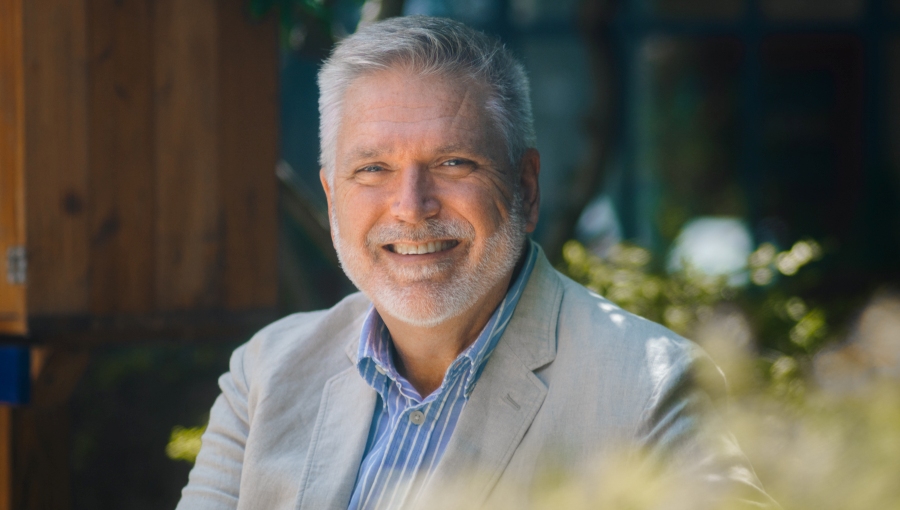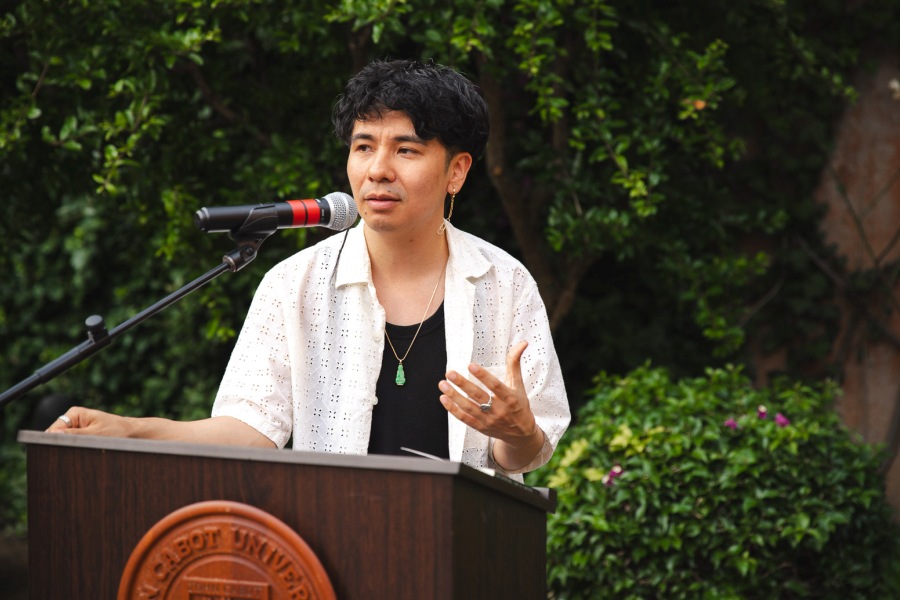Meet Professor Carlos Dews, JCU's New Dean of Academic Affairs
Born and raised in a small town in East Texas, Professor Carlos Dews did his undergraduate studies at the University of Texas at Austin. He holds an M.A. and Ph.D. in American literature from the University of Minnesota. He also earned an MFA in Creative Writing, specializing in fiction writing, from the New School University. In 2020 he published the novel Hush (Negative Capability Press). The leading authority on the life and work of American author Carson McCullers, Professor Dews was recently appointed Dean of Academic Affairs.
What brought you to JCU?
After graduate school, I taught at the University of West Florida for ten years, where I became chair of the Department of English and Foreign Languages. In 2007, while finishing up my MFA in New York, I applied for a position at JCU and I’ve been here ever since.

Carlos Dews
Congratulations on becoming the new Dean of Academic Affairs! How do you feel to be moving into university administration after 13 years as a faculty member? For those who may not know, what will your responsibilities as Dean entail?
I am very excited by the new challenge of being Dean of Academic Affairs. I had a great deal of administrative experience while a graduate student at the University of Minnesota, where I worked in the office of the Dean of Liberal Arts for a number of years, so in some ways becoming Dean feels a bit like coming home. My responsibilities as Dean are primarily related to the curriculum, professors, and the academic experience of students. I have responsibility for the Academic Council, hiring, promoting, and tenuring faculty, managing and developing academic programs and departments, curricular revision, etc.
You were instrumental in moving JCU to online classes during the lockdown in Spring 2020. What was that experience like?
I must say that spearheading the effort to move JCU to online instruction, in the wake of the arrival of COVID-19, was simultaneously one of the most challenging things I have ever been asked to do as well as being greatly rewarding and gratifying. Seeing the faculty, staff, and students of JCU come together to find solutions to the myriad problems lockdown imposed on us was simply inspiring. Given everyone’s cooperation, we were able to turn on a dime and convert ourselves from a place that had never offered online instruction to a university that was able to deliver our curriculum uninterrupted and in myriad modes, despite all the obstacles, and to do all of that in a matter of two weeks, was nothing short of miraculous. The pandemic and our response to it brought out the best in everyone. Helping to manage this was one of the highlights of my career to date.
What are some of your goals as Dean of Academic Affairs? What direction do you see the University going in over the next 10 years?
My primary goal as Dean of Academic Affairs is to make sure that JCU has a clear sense of what it wants to be as an institution of higher learning, in particular a liberal arts university with the values that that implies, then work toward developing and supporting programs that reinforce that identity. I have always said that JCU’s existence, not to mention its success, defies all odds. I want us to continue to hone our identity and work toward excellence in all aspects of the University that we deem essential to that identity: an American liberal arts university that is vitally located in Rome, Italy.
Many parents are encouraging their sons and daughters to major in STEM subjects because they believe that the degree will be more useful and more remunerative. Convince a parent that a liberal arts undergraduate degree is still a valid choice for their children’s future.
Unlike the more specialized degrees in STEM subjects, a liberal arts degree prepares students to be nimble thinkers who can adapt to many more situations and demands, be that in further study, creative endeavors, or the job market. The broad base upon which a liberal arts degree is built provides students with the skills and ways of thinking critically that will serve them throughout their lives and make them better citizens and stewards of the world. Liberal arts graduates are prepared to adapt and be adept in a changing and challenging world. Finally, a liberal arts degree, to specifically address your question, is, forgive me, the only valid choice for the future (as you can see, I am clearly biased toward liberal arts education. May my STEM friends forgive me.)
What writing projects are you working on?
I am currently editing the letters of Carson McCullers (the American writer on whose life and work I have done most of my research and writing) for Houghton Mifflin Harcourt and working on a novel.
How and why did you first become interested in Carson McCullers?
I was first introduced to Carson McCullers’s work when I was an undergraduate at the university and was having a very difficult time, as I was having to give up my ambition to be an orchestral musician due to a medical problem and was struggling to find something else about which I could be equally passionate. A friend suggested I read McCullers’s work (she was going to be a classical pianist and had to give up on it because of a medical condition) as he thought I would find a kindred spirit in McCullers. He was right and I immediately embraced the scholarly obsession that has informed my entire career.
As a professor of English and Creative Writing, what three books would you recommend that everyone should read and why?
Wow, that’s a difficult question. Only three! I am currently reading Sarah Schulman’s Conflict Is Not Abuse that couldn’t be more relevant to our current times, as it provides a model for embracing differences (and differences of opinion). I would also recommend my favorite novel from the past few years, George Saunders’s Lincoln in the Bardo, as well as At Night All Blood Is Black by David Diop, the winner of this year’s International Booker Prize. But I can’t miss a chance to recommend anything written by Masha Gessen, the brilliant Russian-American journalist, and anything written by the late American novelist and Nobel Prize winner Toni Morrison. Finally, everyone should read Carson McCullers. I told you I would have a hard time listing only three!





